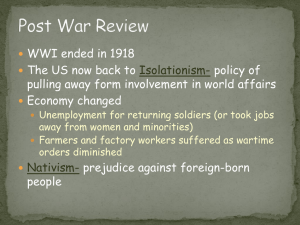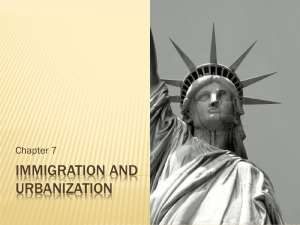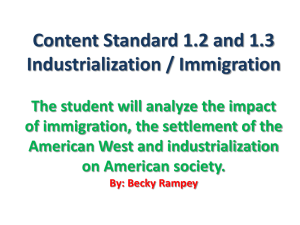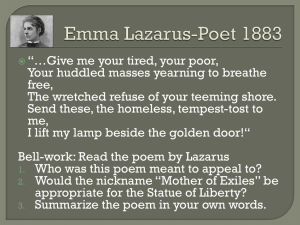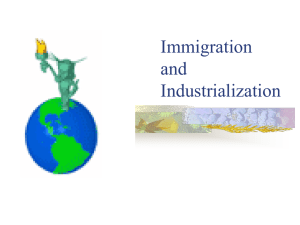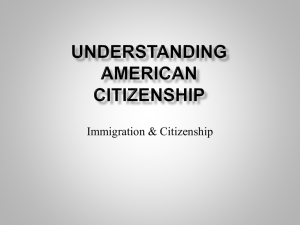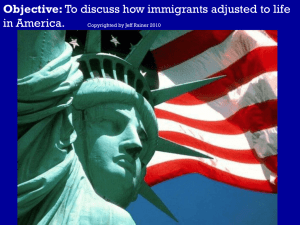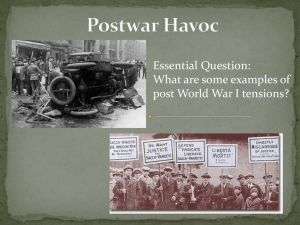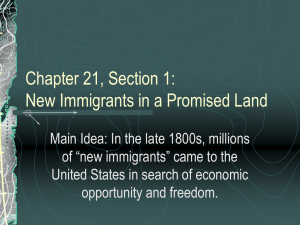Slides - Harvard University
advertisement
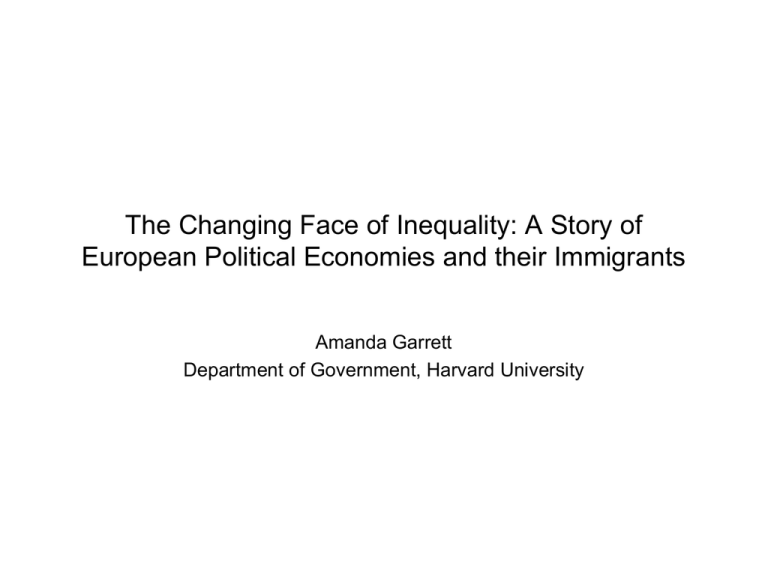
The Changing Face of Inequality: A Story of European Political Economies and their Immigrants Amanda Garrett Department of Government, Harvard University Objectives • How to sharpen theoretically? • Available data? • More empirical work Major Question “Do immigrants tend to fare better (in terms of socio-economic opportunity) in some political economies than in others?” (Education and Job Opportunity) Political Economy Perspective • Varieties of Capitalism (Hall and Soskice 2001) • Social Protection and Skill Formation (Estevez-Abe, Iversen, Soskice 2002) • Gendering the Varieties of Capitalism (Margarita Estevez-Abe 2002) Varieties of Capitalism • Firm-specific analysis and “Clusters of Institutions” • Liberal Market Economies (UK, US) – Competitive Market, formal contracts • Coordinated Market Economies (Germany, Scandinavia) – Intra- and Inter-firm coordination, info networks Skill Formation and Social Protection • General Skills (LME): high portability, objectively certified – Unemployment protection • Industry Specific Skills (CME): low portability – High unemployment, low employment protection • Firm Specific Skills (CME): very low portability, onsite training – High unemployment and employment protection Gender Segregation • Maternal leave makes general skills more appealing • There is less vertical and horizontal gender segregation in LMEs than in CMEs Immigrants and Skill Formation • First generation will be societal “outgroup” Hypothesis: Immigrants will fare better in LMEs than in CMEs where general skills make initial and mid-career entry into the labour market more flexible Data and Methods • ESS Survey Rounds 1 & 2 • Individual-level skill specificity (Cusack, Iversen, Rehm 2005) • Descriptive Statistics • Problems: 6500 Immigrants over 21 countries; United Kingdom is only LME example Dependent Variable • “Inequality” measured as: – Unemployment – Vertical Segregation (Occupational Hierarchy) – Horizontal Segregation (Concentration in Immigrant Jobs) – Union Membership Conclusions • Data limitations make it hard to assess hypotheses • Cannot conclude immigrants are differentially affected by VOC structures • Need better data and perhaps different variables or hypotheses?

